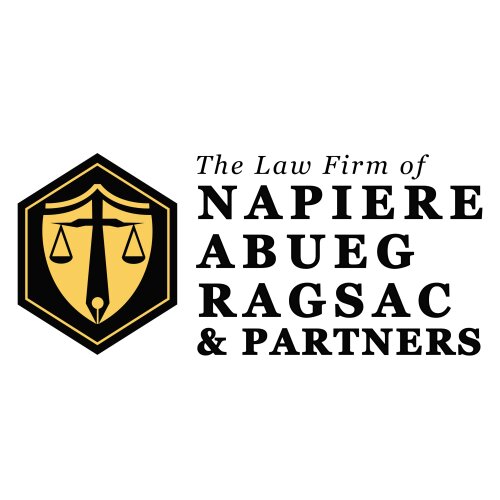Best Gaming Lawyers in Philippines
Share your needs with us, get contacted by law firms.
Free. Takes 2 min.
Or refine your search by selecting a city:
List of the best lawyers in Philippines
About Gaming Law in the Philippines
The gaming industry in the Philippines is a significant sector of the economy, encompassing a range of activities such as lottery, casino, sports betting, and online gaming. The regulatory framework for gaming is established by the government to ensure fairness, security, and the protection of all stakeholders involved. The Philippine Amusement and Gaming Corporation (PAGCOR) is the primary regulatory body, overseeing land-based and online gaming operations. The industry is seeing a steady growth driven by both local and international demand.
Why You May Need a Lawyer
There are several scenarios where seeking legal advice in the gaming sector may be necessary, including:
- Licensing and Compliance: Ensuring that your gaming operations comply with local laws and guidelines.
- Business Contracts: Negotiating and drafting contracts with partners, suppliers, or employees.
- Dispute Resolution: Resolving conflicts between businesses or individuals in contractual disagreements.
- Intellectual Property Issues: Protecting your business's intellectual property rights and addressing infringements.
- Taxation Matters: Navigating the complexities of gaming-related taxes and other financial obligations.
Local Laws Overview
The primary law governing gambling in the Philippines is Presidential Decree No. 1869, also known as the PAGCOR Charter. Here are key aspects of local laws:
- All gaming operations must be licensed and regulated by PAGCOR.
- Online gaming activities must also comply with the regulations set by the Philippine Offshore Gaming Operators (POGO).
- The Anti-Money Laundering Act imposes strict requirements on gaming operators to prevent and report money laundering activities.
- Foreign operators must establish domestic entities to offer gaming services legally in the Philippines.
- PAGCOR also regulates advertising and promotional activities for gaming companies to ensure they adhere to ethical standards.
Frequently Asked Questions
What is the legal age for gambling in the Philippines?
The legal age for engaging in gambling activities in the Philippines is 21 years old.
Are online casinos legal in the Philippines?
Yes, online casinos are legal and regulated through the Philippine Offshore Gaming Operators (POGO), but they primarily serve foreign customers.
What responsibilities do I have as a gaming operator?
Responsibilities include obtaining appropriate licenses, following regulations, maintaining a fair gaming environment, and ensuring anti-money laundering compliance.
How are winnings from gambling taxed in the Philippines?
Gambling winnings are generally subject to tax, and it is advisable to consult with a tax professional to understand specific obligations.
Can foreign nationals invest in gaming operations in the Philippines?
Yes, foreign nationals can invest, but they must comply with the local regulatory frameworks, including establishing a domestic entity.
What steps should be taken if there's a breach of gaming regulations?
Immediate corrective actions should be taken, and it's crucial to consult with legal professionals to address the breach and avoid penalties.
What is the role of PAGCOR?
PAGCOR regulates all gaming operations in the Philippines, ensuring they operate within the boundaries of the law, protecting the interests of players and operators alike.
How can I dispute a gaming-related issue?
Legal disputes can be resolved through negotiation, mediation, or legal proceedings. Consulting with a lawyer can help determine the best course of action.
Are there restrictions on advertising gaming products?
Yes, advertising must comply with ethical guidelines set by PAGCOR to prevent misleading or inappropriate promotions.
What is the procedure for obtaining a gaming license?
A formal application must be submitted to PAGCOR, which involves providing necessary documentation and meeting regulatory standards.
Additional Resources
For further assistance, consider the following resources:
- PAGCOR: The central authority on gaming regulation in the Philippines.
- Philippine Offshore Gaming Operators (POGO): For information on online gaming regulations.
- The Anti-Money Laundering Council (AMLC): For guidelines on financial compliance in gaming.
- Local Legal Firms: Specializing in gaming law for personalized advice and services.
Next Steps
If you require legal assistance, it is advisable to:
- Consult with a lawyer specializing in gaming law to understand your legal standing and obligations.
- Research and gather any relevant documentation or information related to your case.
- Contact regulatory bodies like PAGCOR or POGO for clarifications on specific legal requirements.
- Consider joining industry associations or forums to gain insights and expert opinions on gaming law developments.
Lawzana helps you find the best lawyers and law firms in Philippines through a curated and pre-screened list of qualified legal professionals. Our platform offers rankings and detailed profiles of attorneys and law firms, allowing you to compare based on practice areas, including Gaming, experience, and client feedback.
Each profile includes a description of the firm's areas of practice, client reviews, team members and partners, year of establishment, spoken languages, office locations, contact information, social media presence, and any published articles or resources. Most firms on our platform speak English and are experienced in both local and international legal matters.
Get a quote from top-rated law firms in Philippines — quickly, securely, and without unnecessary hassle.
Disclaimer:
The information provided on this page is for general informational purposes only and does not constitute legal advice. While we strive to ensure the accuracy and relevance of the content, legal information may change over time, and interpretations of the law can vary. You should always consult with a qualified legal professional for advice specific to your situation.
We disclaim all liability for actions taken or not taken based on the content of this page. If you believe any information is incorrect or outdated, please contact us, and we will review and update it where appropriate.
Browse gaming law firms by city in Philippines
Refine your search by selecting a city.
















